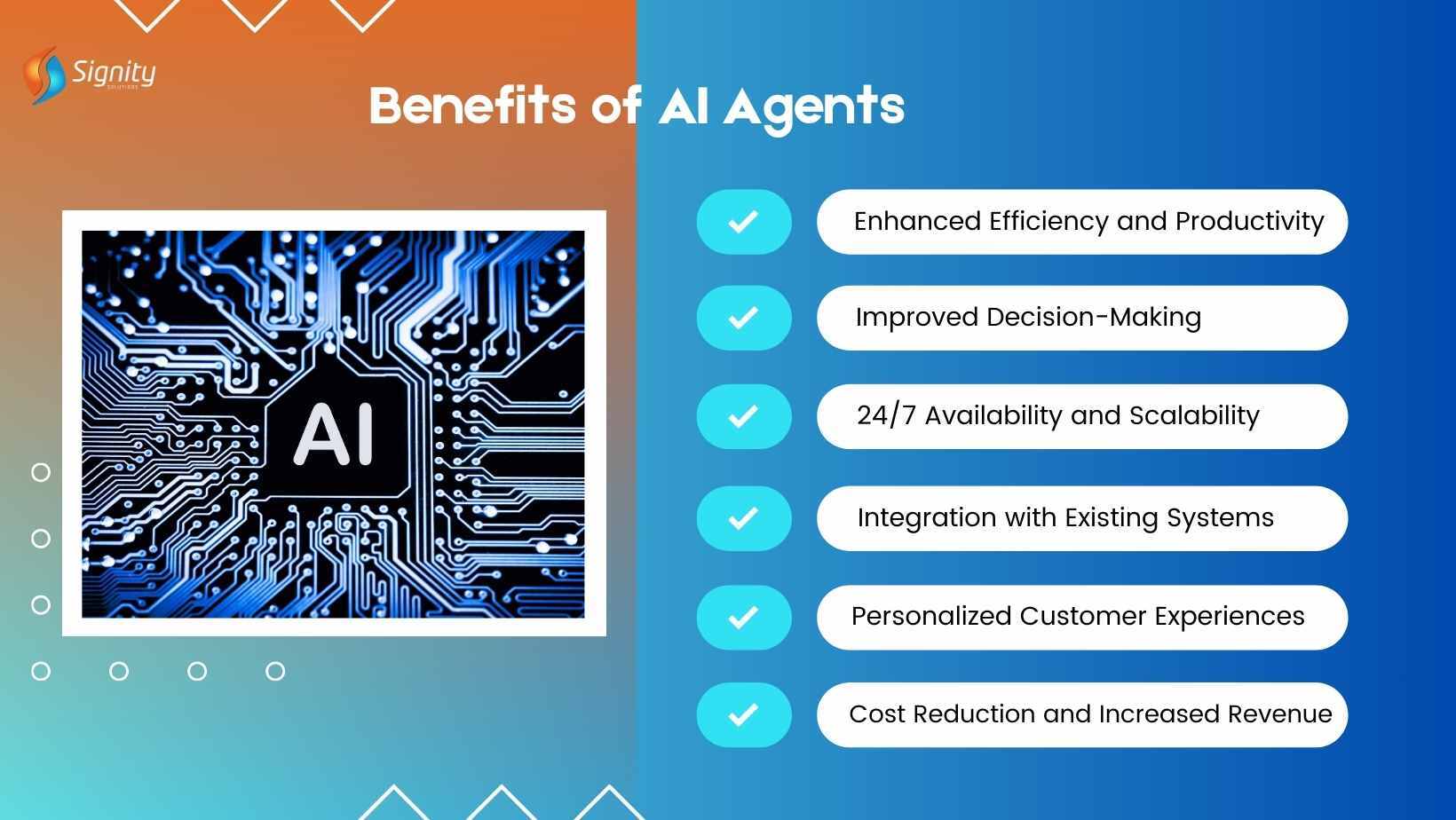Unlocking the Complete Possible of the AI Agents Marketplace: What You Need to Know
The AI agents marketplace provides substantial opportunities for companies intending to boost performance and automation. Steering through this landscape needs a calculated technique. Firms have to assess their certain demands and recognize appropriate AI services. As organizations begin this trip, they encounter crucial decisions that can shape their future. What elements should they prioritize to ensure successful combination and make the most of benefits? Comprehending these aspects is necessary for making educated selections.
Understanding the AI Agents Marketplace Landscape
As the demand for AI options proceeds to expand, the landscape of the AI agents marketplace has actually evolved into a dynamic community. This marketplace includes a diverse series of product or services created to improve automation and effectiveness across various sectors. Key players consist of developed tech firms, start-ups, and open-source neighborhoods, each contributing unique innovations and capabilities.
The affordable nature of this environment cultivates fast developments, resulting in a selection of AI agents tailored to specific jobs, from client service chatbots to complicated decision-making systems. As businesses significantly acknowledge the value of AI, they look for options that use scalability and integration with existing modern technologies.
Governing considerations and ethical effects additionally shape the marketplace, engaging designers to prioritize openness and accountability. On the whole, the AI agents marketplace proceeds to expand, driven by technical development and an expanding understanding of the transformative capacity of expert system.
Key Applications of AI Agents Throughout Industries
AI agents are transforming numerous markets by automating jobs that enhance functional efficiency and decision-making. In the medical care industry, AI agents assist in diagnostics and individual management, simplifying processes and boosting results. In finance, they examine market trends and assist in trading, enabling quicker and a lot more informed investment choices. Retail industries use AI agents for supply administration and individualized customer experiences, maximizing sales strategies and stock turnover.
Production likewise advantages, with AI agents keeping an eye on equipment and anticipating maintenance requires to reduce downtime. In marketing, they analyze customer actions and automate targeted projects, raising engagement and conversion prices. In addition, AI agents play a vital role in logistics, enhancing supply chains and reducing expenses with wise directing and demand forecasting. As companies throughout these markets embrace AI agents, they expose new degrees of performance and innovation, placing themselves for future development and competitive advantage.
Recognizing the Right AI Agents for Your Organization Demands
Exactly how can companies identify which AI agents align ideal with their details needs? To make enlightened choices, organizations should start by evaluating their functional goals and determining the specific obstacles they encounter. This includes defining the crucial functions that AI agents will certainly sustain, such as customer solution, information analysis, or procedure automation.
As soon as the requirements are clear, firms can check out the marketplace for AI agents tailored to those features. They ought to take into consideration aspects such as the representative's capabilities, integration simplicity with existing systems, and adaptability to various workflows. In addition, evaluating instance studies or testimonials from comparable industries can provide understandings into effective applications.
Finally, seeking advice from with technical specialists or carrying out pilot examinations can even more improve choices, making sure that the selected AI agents not only fulfill immediate functional demands but likewise straighten with long-term calculated goals. This systematic technique boosts the chance of selecting one of the most efficient AI solutions.
Examining AI Agents: Metrics and Efficiency Indicators
Evaluating the performance of AI agents calls for a clear collection of metrics and performance signs customized to the specific goals of the organization (AI Agents Marketplace). Trick metrics frequently consist of accuracy, which determines the representative's capacity to provide appropriate outcomes, and feedback time, showing the rate at which the agent processes requests. Additionally, user fulfillment ratings supply insights into how well the agent meets user assumptions
Involvement metrics, such as frequency of usage and retention rates, can indicate the representative's effectiveness in preserving customer interest. Cost-effectiveness is another important efficiency sign, figuring out visit whether the benefits obtained from the AI representative justify its operational prices.
Flexibility and learning rates are significant, as they gauge the agent's capacity to improve over time. With each other, these metrics provide a considerable structure for evaluating AI agents, enabling organizations to make informed choices about their assimilation and optimization.

Finest Practices for Integrating AI Agents Into Your Procedures
Effective integration of AI agents into operations requires a critical strategy that straightens with the company's objectives. Initially, organizations should examine their particular requirements and identify the areas where AI can include one of the most worth. This requires a detailed evaluation of existing workflows and procedures to pinpoint ineffectiveness.
Next, it is essential to select the ideal AI agents tailored to these needs, making sure compatibility with existing systems. Training workers to work alongside AI agents boosts acceptance and fosters a collective environment.
Additionally, organizations have to develop clear interaction channels to facilitate responses and modifications, making certain continual improvement of AI performances.
Ultimately, keeping an eye on efficiency metrics post-implementation enables for continuous examination, assisting companies adapt and optimize their AI techniques with time. By complying with these finest techniques, organizations can properly utilize AI agents to enhance performance and attain their critical objectives.
Navigating Honest Factors To Consider in AI Fostering
What ethical predicaments develop when companies adopt AI modern technologies? The implementation of AI agents provides numerous challenges, specifically concerning liability, transparency, and justness. Organizations should grapple with guaranteeing that their AI systems do not perpetuate predispositions, as algorithms educated on historical information can reinforce existing inequalities. Furthermore, the opacity of some AI decision-making procedures can result in a lack check of accountability, making it difficult to determine responsibility in the occasion of errors or unfavorable results.
Personal privacy issues additionally arise, as AI systems commonly need extensive information collection, elevating concerns concerning permission and information protection. The potential displacement of jobs due to automation introduces ethical considerations surrounding labor force impact and financial inequality. Organizations needs to browse these intricacies carefully, cultivating a moral framework that prioritizes civils rights and societal welfare while making best use of the advantages of AI innovations. By dealing with these honest factors to consider, companies can guarantee responsible AI adoption.
Future Trends: What to Anticipate in the AI Agents Marketplace
The AI agents marketplace is positioned for significant evolution, noted by boosted automation capacities that improve jobs across numerous markets. Along with this, boosted personalization functions are expected to tailor customer experiences better, dealing with specific choices and requirements. These trends recommend a future where AI agents end up being vital tools for both companies and customers.
Boosted Automation Abilities
Emerging fads in the AI agents marketplace signal a considerable leap in automation capacities, improving markets and workflows. As AI agents come to be more advanced, they are progressively able to manage intricate tasks with minimal human intervention. Related Site This development allows companies to enhance procedures, lower expenses, and enhance productivity. For example, fields such as logistics and production are leveraging AI agents to automate inventory administration and predictive upkeep, bring about optimized performance. In addition, the assimilation of equipment learning formulas empowers these agents to learn from past information, improving their effectiveness over time. As automation comes to be extra prevalent, services can anticipate transformative changes in exactly how they run, leading the way for innovative solutions and new competitive benefits in the marketplace.

Improved Personalization Functions
How will improved customization functions improve individual experiences in the AI agents marketplace? These advancements are readied to reinvent how individuals interact with AI agents, customizing services to specific preferences and requirements. By evaluating customer data and actions, AI agents will supply recommendations and remedies that resonate even more deeply with each user. This shift in the direction of hyper-personalization will not just improve individual complete satisfaction yet also foster higher commitment to particular systems. On top of that, the combination of responses mechanisms will permit AI agents to adjust in real-time, making sure that the customer experience continually progresses. As these attributes become common, the marketplace will likely see increased engagement and retention, driving advancement and competitors amongst AI developers to provide one of the most tailored experiences possible.
Often Asked Inquiries

How Do I Pick the Right AI Agent Supplier?
Selecting the appropriate AI representative vendor includes reviewing their competence, reliability, and client responses. Analyzing the technology's compatibility with existing systems and comprehending prices designs are crucial action in making an informed decision.
What Are the Costs Associated With Deploying AI Agents?
The prices linked with deploying AI agents include licensing charges, framework expenses, upkeep, training, and possible combination prices. Organizations has to review these aspects to successfully allocate application and guarantee a successful release approach.
Can AI Agents Be Personalized for Particular Company Needs?
AI agents can without a doubt be tailored to satisfy particular service requirements, allowing companies to customize performances and performance - AI Agents Marketplace. This flexibility improves operational performance, addresses special challenges, and cultivates advancement in different sectors and sectors
Exactly how Do I Ensure Information Privacy With AI Agents?
To assure data personal privacy with AI agents, organizations should carry out robust security, establish clear data handling plans, perform normal audits, and use anonymization methods to safeguard sensitive details throughout processing and storage.
What Assistance Alternatives Are Offered After AI Agent Application?
After implementing AI agents, organizations usually have accessibility to various assistance options, including technological assistance, individual training, and normal updates. These resources ensure smooth procedure and help attend to any kind of difficulties that may occur post-implementation.